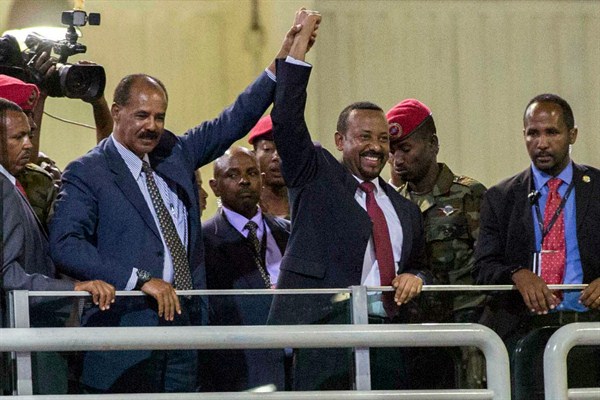The leaders of Ethiopia, Eritrea and Somalia gathered in the Eritrean capital of Asmara last month for a surprise three-way meeting. The summit, which took place against the backdrop of a rapid thaw in Ethiopian-Eritrean relations, has raised hopes among observers for more frequent and durable cooperation in the Horn of Africa region. But its implications are uncertain for fractured Somalia. In an interview with WPR, Awet Weldemichael, a professor of African history and politics at Queen’s University in Canada, discusses the potential extent of a trilateral rapprochement between the historically troubled neighbors.
World Politics Review: What were the conditions that allowed leaders from Ethiopia, Eritrea and Somalia to gather for a trilateral summit last month?
Awet Weldemichael: It is important to first touch on the rapprochement between Eritrea and Ethiopia, which preceded the trilateral summit. After a bloody two-year border conflict from 1998 to 2000, followed by a 17-year stalemate, both Eritrea and Ethiopia faced serious internal crises, making it mutually beneficial for them to bury the hatchet. The rise to power of Prime Minister Abiy Ahmed in Ethiopia, his aggressive domestic reforms, and his repeated calls for the resolution of the conflict with Eritrea helped Asmara overcome its distrust of Addis Ababa.

